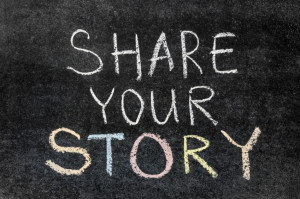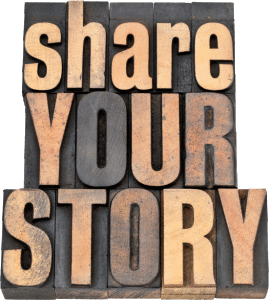 How do we monetize digital history projects?
This question preoccupies my mind. I am in a position where I need to seriously consider how I can make Ben Franklin’s World both self-supporting and a job that pays me for the time I put into the show.
How do we monetize digital history projects?
This question preoccupies my mind. I am in a position where I need to seriously consider how I can make Ben Franklin’s World both self-supporting and a job that pays me for the time I put into the show.
In this post, you will discover how Ben Franklin's World has fared six months since its launch and six ideas for how history communicators might monetize their projects to earn the financial support they need for their work.
State of Ben Franklin’s World: 6 Months Since Launch
Ben Franklin’s World: A Podcast About Early American History launched just over 6 months ago. To date, it has 36 episodes and has received over 185,000 downloads.
Podcast Statistics
Statistically, Ben Franklin’s World has done exceptionally well.
Podcast hosting service Libsyn released statistics for January 2015. Libsyn hosts approximately 18,000 podcasts. In January 2015, new podcast episodes averaged 195 downloads within the first month of release. On average, each podcast experienced 1,921 total downloads over their entire catalog for the month.
New episodes of Ben Franklin’s World receive around 2,000 downloads within their first week of release and the entire catalog averages over 25,000 downloads per month.
Measurable Impact
Listeners engage with me to tell me how much they enjoy the show and specific episodes. Guest historians have told me that they have seen sales spikes in books after their interview aired. Recently, Mental Floss featured Ben Franklin's World in its list of “19 History Podcasts that will Delight Your Brain."
By all measures Ben Franklin’s World is a success. The podcast is realizing the goal I set out to achieve: create wide public awareness about early American history and the work of professional historians.
Financial Realities
I love producing Ben Franklin’s World and being a part of its success, but what started as a side project and hobby has become my full-time, unpaid job. In fact, I pay the podcast to keep it going.
Each episode costs $90 to produce. This cost includes website and audio hosting services, the discounted fees of my professional audio engineer, and the fees associated with the tools I need to promote each episode and help grow the audience.
 This fee does not include any of my start-up costs: recording equipment and software, graphic design, website theme, educational resources, and professionally produced segment bumpers (the Ben Franklin’s World intro, outro, and in-show music and voiceovers). Nor does $90 per episode include my time.
This fee does not include any of my start-up costs: recording equipment and software, graphic design, website theme, educational resources, and professionally produced segment bumpers (the Ben Franklin’s World intro, outro, and in-show music and voiceovers). Nor does $90 per episode include my time.
Like many digital history projects, Ben Franklin’s World has become a very expensive hobby. As an historian without institutional support, my family funds my podcast. This needs to change.
I want to keep Ben Franklin’s World going, but I need to find a way to make the show self-funding. Ideally, I would find a way to earn enough money so that Ben Franklin’s World could start paying me for my time too.
I would also love to generate enough revenue to hire people to help with the show so I can produce more episodes, shows, and historic event podcast series (i.e. 10 episodes on the American Revolution, Civil War, Native American History, etc.) and add educational resources to each episode.
This leaves me with the quandary: How do we monetize digital history projects?
Ideas for Monetizing Digital History Projects
Presently, I have six ideas for how I and others with expensive, but worthy digital history projects might earn revenue to help support our work.
1. Advertising
Website Advertising: Google Adwords offers the easiest way to place ads on your website. However, unless you have a high-traffic website, you most likely won't earn enough income from Google Adwords to cover your website hosting costs.
The most profitable way to earn money through website advertisements is to seek out partners who want to reach your specific audience.
Podcast Episode Advertising: Many podcasters offer ads in their episodes. Some have national sponsors like MailChimp, Squarespace, Lynda.com, and Audible.com. Others have more local sponsors that are unique to their audience or they advertise their own products and services.
Podcasters present sponsor ads by reading a blurb about their sponsor or by talking about their experiences with the sponsor and their product or service. These ads might be heard at the beginning, middle, or end of the show.
Podcasters need to consider sponsor advertising carefully. When podcasters read or discuss a sponsor they provide an implicit endorsement of their sponsor.
2. Consulting
People who start digital projects often attract the interest of others who would like to start a similar project. History communicators might consider charging for the times we offer more full-length advice on how someone else can do what we do.
 3. Grants
3. Grants
Most digital history projects should be eligible for state, federal, and private grants.
Most often this model provides only temporary support. Many public historians refer to grants as "soft money" because they offer a pre-determined amount of support for a pre-determined period of time.
With that said, I noticed at NCPH 2015 that there are many historical consultants who make a living income by pursuing “soft money” opportunities.
4. Institutional Backing
Similar to a sponsor, historians with digital history projects could seek institutional support.
There are several history organizations as well as university initiatives that have mandates or missions to support public outreach and/or digital humanities work. There is a potential that one of these organizations might be interested in bringing in a proven digital history project to help bolster their goals.
I imagine that such a partnership would require public recognition on the digital history project, consulting work to help others in the program get their projects up and running, as well as use of the proven project to help launch new, organizational digital history or humanities projects.
5. Charge Admission
Charge visitors for use of our projects.
Historians with digital history magazines, databases, podcasts, or exhibits could follow the model established by The New York Times and other digital media outlets by offering some content for free while charging for other content.
Some podcasters provide free access to their most recent episodes and charge listeners for access to their back catalogs.
I am not a fan of this option, but it does exist.
 6. Crowdfunding
6. Crowdfunding
Sites like Kickstarter and Patreon make it possible to fund digital history projects through crowdfunding. Patreon provides a particularly attractive model.
Patreon allows content producers (bloggers, vloggers, podcast producers, writers, etc.) to ask their friends, family, and followers to become their patrons. In exchange for a monthly donation or some other reward, support for your work comes from those who consume it.
Some content producers have created four- and five-figure monthly incomes by using the service, although most content producers earn significantly less.
(See: Loug Mongello of WDW Radio and Kinda Funny Games.)
Conclusions
Digital history projects offer historians an awesome opportunity to reach out to and interact with the history-loving public.
These projects have played, and will continue to play, a large role in historians’ work to bring history back to the forefront of the public mind.
Unfortunately, all of these projects come at a cost of time and money and few academic or public history institutions have the resources to support them. This means many digital history projects will continue to be bootstrapped and exist in a precarious state until we find ways to support them.
I don’t know how I will make Ben Franklin’s World self-supporting. But, I will choose a method that ensures that all of its valuable content will continue to be available free of charge to anyone who wants to access it. This is a goal that is important to me.
 What Do You Think?
What Do You Think?
Do you have ideas about how we might fund digital history projects?
Are you or your organization interested in sponsoring or forming a partnership with Ben Franklin’s World?
Let’s keep this conversation going! Leave a comment, tweet, or send me an e-mail.









